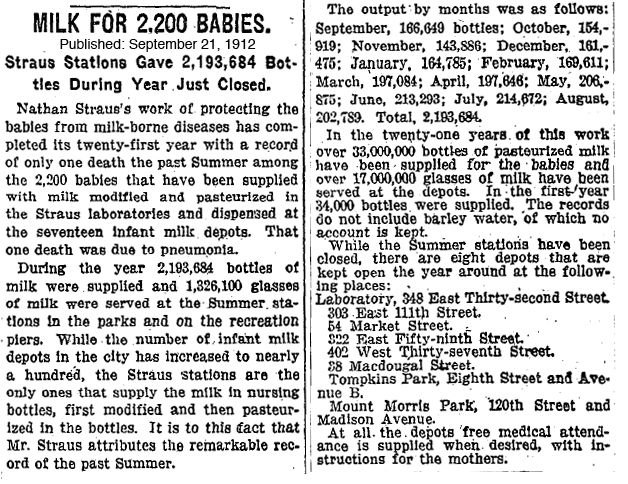
It was probably located there because of the extreme poverty of the area.
from the Florida Atlantic Library
Nathan Straus: Cared For People And Palestine
by Seymour "Sy" Brody
Nathan Straus served his country without a uniform. When the American expeditionary forces were fighting the Spaniards in Cuba in 1898, Straus presented them with refrigerating plants that helped to check the mortality rate from disease. He was recognized for this donation by Admiral Schley, who expressed his appreciation and thanks for his assistance.
He was bom in Otterberg Rhenish Bavaria on January 31, 1848, the son of Sara and Lazarus Straus, and brother of Isadore and Oscar. He came to this country when he was a child and was educated in a log cabin school in Talbotton, Georgia. After the Civil War, the family moved to New York, where, in 1866, he joined his father's firm.
In 1888, he became one of the owners of R.H. Macy and Co. He started many innovations in the store, such as rest rooms, a depositors' account system, medical care, and a cost-price lunchroom for the Macy employees.
On April 28, 1875, he married Lina Gutherz, an educated and cultured woman who was equally enthusiastic about his philanthropies. Straus became park commissioner in New York City (1889-93) and president of the board of health in 1898. He turned down the nomination for mayor from the Democratic Party in 1894.
Straus was always helping people. In the terrible winter of 1892- 93, he distributed food for the poor and sold a million and half buckets of coal for only five cents each. In the following winter, he gave away more than two million five-cent tickets good for coal, food or lodging. He also established lodging houses that provided bed and breakfast for five cents.
He was a great believer in the pasteurization of milk and started a campaign to educate the public. This ultimately led to compulsory pasteurization of milk in most cities. Prior to this treatment of milk, 241 babies out of a thousand died before their first birthday. After pasteurization of milk, during four years, only four babies died.
In 191 1, President William Howard Taft appointed Straus as the only United States delegate to the Third Intemational Congress for the Protection of Infants, which was held in Germany.
Philanthropy became his ruling passion as the years rolled by. He never acquired great wealth because he was always supporting organizations and causes. His greatest devotion was to Israel. He gave more than two-thirds of his fortune to Palestine and he devoted the last 15 years of his life to this cause.
In Palestine, Straus established a domestic science school for girls in 1912, a health bureau to fight malaria and trachoma, and a free public kitchen. He also opened a Pasteur Institute, child-health welfare stations, and the monumental Nathan and Lina Straus Health Centers in Jerusalem and Tel Aviv.
Straus' wife, Lina, died in 1930 and he died a year later. Straus was hailed as the greatest Jew in the last quarter of a century by President Taft. He will always be remembered as a philanthropist and as "a man who care and loved people and Palestine."


























No comments:
Post a Comment